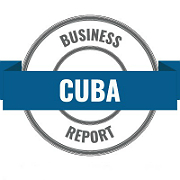On Monday, September 2, a court in Palma de Mallorca, Spain ruled in favor of Meliá Hotels International in a case filed by the descendants of former Cuban businessman Rafael Lucas Sánchez Hill.
The Sánchez Hill lawsuit was seeking $10 million from Meliá Hotels. The plaintiffs based their claim on alleged trafficking of land and the illegitimacy of Cuban law by which the Meliá Group has managed hotels since the late 1980s. The property was nationalized by Law 890 in 1960 after the Revolution in Cuba.
It is the first case to be filed in a European court following the activation of the United States Helms-Burton Title III legislation against Cuba.
The case has been dismissed by the court in Spain. The decision said the lawsuit filed by the plaintiff required the previous determination of the lawfulness of the nationalization at that time by the Cuban government. The court expressed the opinion that it is “not competent to assess, among other things, whether the nationalization agreed by the Cuban State in 1960 was lawful or not.”
The ruling is significant because it examines the essence of the extraterritoriality of U.S. regulations. It also reveals the even greater issue of the sovereignty of nations to determine what they can or cannot decide about
Meliá’s attorney, Juan Ignacio Pardo said of the case, “it is evident that the activation of Title III of the
The legal advisors for Meliá, the prestigious Garrigues law firm, expressed its satisfaction with the decision that, “with absolute respect for applicable law, begins the path of the necessary clarification of the real limits of extraterritorial claims of this kind.”
Gabriel Escarrer, the founder and CEO of Meliá Hotels International tweeted two days ago, “We are glad to report the file by the Spanish justice of the first lawsuit against Meliá by the Helms Burton Act. Remember that the courts of another country cannot review the laws and acts performed by a sovereign state in its execution.”

“Throughout these 31 years, we have been clear: Our bet on Cuba is unconditional. We believe this is totally unfair, all these measures… We will continue collaborating closely with Cuban authorities in the development of the country’s tourism industry, which I believe is a model in every sense,” he added.
It should also be noted that other nations are also in full support of Cuba and have vowed to protect their investors on the Island. The European Union has threatened to use the EU blocking statute (Council Regulation (EC) No. 2271/96 of 1996) protecting against the effects of the extraterritorial application of legislation adopted by a third country. Canada also has its own legislation known as the Foreign Extraterritorial Measures Act (FEMA) to help protect Canadians
The Spanish court’s decision can be appealed but is predicted to dampen future enthusiasm for Helms-Burton litigants attempting to sue in Spain, or any other nation because of legislation in place which
The plaintiffs were ordered to pay the court costs.
In the company’s hotel development plans, Meliá expects to have 38 hotels and more than 15,000 rooms in Cuba by 2020.

From our staff writers and editors.










